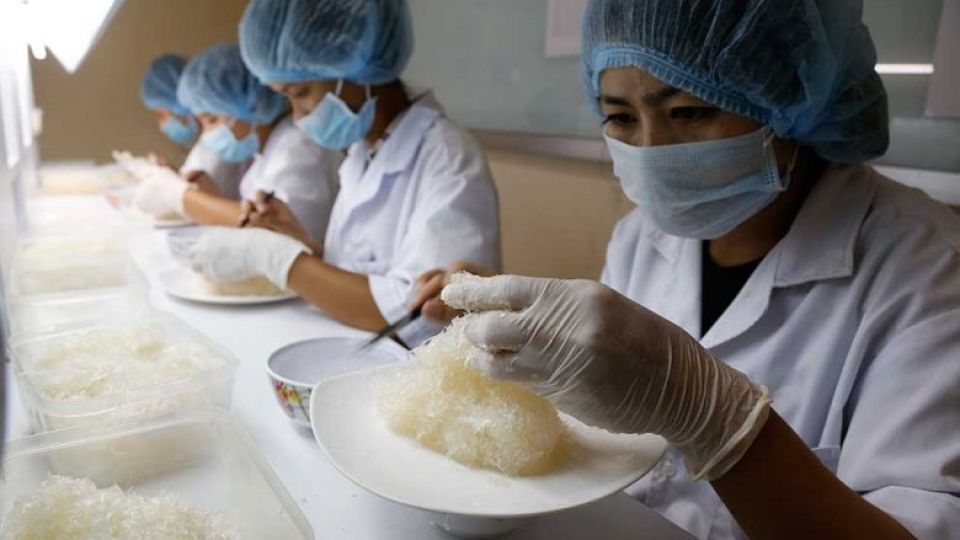February 17, 2022
PHNOM PENH – Despite high market demand for edible bird’s nests, the prices and investments involving the commodity have not shown significant positive trends in recent years, according to Cambodia Bird’s Nest Federation president Nang Sothy.
Consumed for its perceived health and wellbeing benefits, edible bird’s nests are made from the dried saliva of the white-nest swiftlet (Aerodramus fuciphagus) found throughout Southeast Asia. Traditionally, the processed swiftlet nests are double boiled with rock sugar to make a delicacy known as “bird’s nest soup”.
Sothy told The Post on February 15 that investments in man-made swiftlet homes had recorded no material positive signs in the last two or three years, even though orders for the commodity have picked up.
He blamed these circumstances on the inability to officially export bird’s nests to China, a general lack of investment capital among interested parties and a legion of operations that merely emulate others without employing the proper techniques, among other reasons.
He said uncleaned edible bird’s nests currently go for $480-$750 per kilogramme and cleaned ones hover in the $1,500-$3,500 range, depending on quality.
Local production is sufficient to meet domestic demand, with copious amounts sent to China via Vietnam, Malaysia and Thailand, he added.
Sothy said there are about 3,000 white-nest swiftlet homes in Cambodia, a figure he noted is overshadowed by Malaysia, Indonesia and Thailand, each of which he said could have as many as 100,000.
Lim Vathanak, owner of the Khmer Natural Bird’s Nest business that manages two such homes in Sre Ambel, Koh Kong province and Veah Rinh, Preah Sihanouk province, said the market has not been so great in the Covid-19 era, with prices and demand dipping to some extent.
He ascribed the downturn to pandemic-driven export controls and associated difficulties, highlighting that are no major issues related to domestic demand or prices.
“My cleaned edible bird’s nests currently sell for $1,800 per kilogramme and uncleaned ones fetch $700. These prices are similar to last year, but are slightly lower compared to two or three years ago,” he said, sharing that he has around seven or eight years of experience in the business.
Vathanak stressed that local farming of white-nest swiftlets would gain rapid momentum if Cambodia could directly export the bird’s nests to China, which he said is the most populous market – where demand is high.
According to the Ministry of Agriculture, Forestry and Fisheries, Cambodia has submitted a number of proposals to the Chinese government to export agricultural products such as longan, peppercorn, durian, pomelos and edible bird’s nests.
Ngin Chhay, head of the ministry’s General Directorate of Agriculture, previously told The Post that his team was working with the Chinese private sector and authorities to export Cambodian edible bird’s nests to China.
However, he identified two major sources of obstacles to that plan: negotiations with Beijing, and domestic issues.
He elaborated that Chinese authorities only consider a single product per country at a time to import. There is also a domestic shortage in factories and cottage industries to process bird’s nest, he said, adding that, by and large, they fail to meet Chinese standards.
“Cambodia has yet to set up an ISO-certified processing plant,” he said, citing research conducted by authorities.


